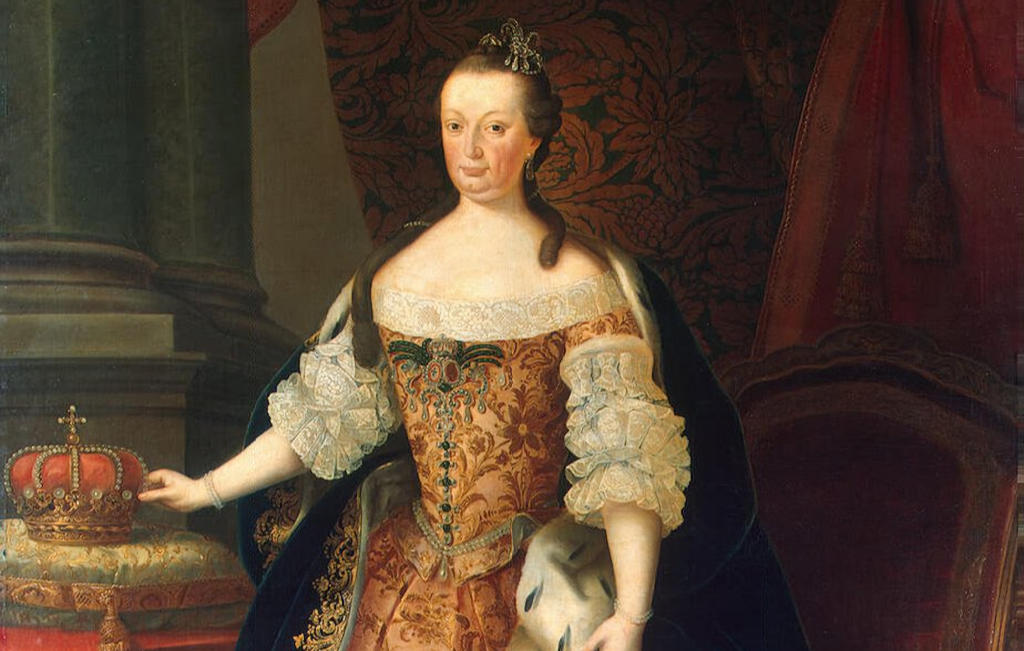Early Life and Engagements:
Mariana Victoria was born at the Royal Alcazar of Madrid in Madrid. She shared her forenames with her paternal grandmother, Maria Anna Victoria of Bavaria. As the daughter of Philip V of Spain and Elisabeth Farnese, she held the title of Infanta of Spain and had the style of Royal Highness. Mariana Victoria's birthright placed her fifth in line to the Spanish throne. During her early years, the political landscape shaped her future engagements.Following the War of the Quadruple Alliance, a reconciliation between France and Spain was sought. Mariana Victoria was engaged to her first cousin, Louis XV of France, as part of a wider set of engagements orchestrated by Philippe d'Orléans, the Regent of France. The couple was not immediately married, as Mariana Victoria was to reach a more mature age. She arrived in Paris with great celebration but faced a distant relationship with Louis XV, who avoided her presence.
Life in France and Return to Spain:
Mariana Victoria's education was entrusted to Marie Anne de Bourbon, an illegitimate daughter of Louis XIV, and Madame de Ventadour served as her governess. However, under the influence of Prime Minister Louis Henri, Duke of Bourbon, Mariana Victoria was sent back to Spain in 1725 at the age of seven. Bourbon aimed to maintain influence over Louis XV and proposed his sister Henriette Louise de Bourbon as an alternative wife. The rejection of the Spanish court further strained relations between Spain and France.Crown Princess of Portugal:
Discussions for Mariana Victoria's marriage to the Prince of Brazil, Infante José, began in 1727. The marriage was eventually negotiated, and she wed the Prince of Brazil on January 19, 1729, in Portugal. From that point until her husband's accession to the throne in 1750, she held the title of Her Royal Highness the Princess of Brazil. Mariana Victoria and Joseph developed a close relationship, sharing interests in hunting, music, and their strong religious beliefs. They had eight children, four of whom survived infancy.Reign and Regency:
In 1750, Mariana Victoria's husband ascended the throne as Joseph I of Portugal. The couple's reign was marked by the influence of the Marquis of Pombal, a favorite of Joseph's mother, Queen Mother. Pombal, wielding significant power, implemented reforms and aimed to reduce the influence of the church and his political adversaries. The devastating Lisbon earthquake of 1755, which claimed the lives of 100,000 people, deeply affected Joseph I. His subsequent claustrophobia led to the royal court being relocated to a tent complex in Ajuda, organized by Pombal.In 1759, the Távora affair shook the Portuguese court, with an assassination attempt on Joseph I's life. Pombal held the noble Távora family responsible and ordered their execution, sparing only some women and children upon the intercession of Mariana Victoria and her daughter. As Pombal effectively ruled the state, the influence of Joseph and Mariana Victoria waned.
During Joseph I's declining health, he allowed Mariana Victoria to act as regent in his name. She assumed the role on November 29, 1776, and remained in power until Joseph's death on February 24, 1777. Mariana Victoria's eldest daughter, Maria I, became the first queen regnant of Portugal. Throughout Maria I's reign, Mariana Victoria exerted significant influence and provided advice on matters of state. The powerful Pombal was exiled from court, and Mariana Victoria worked to improve relations between Portugal and Spain.
Lisbon.vip Recommends
Later Life and Legacy:
After her daughter assumed government, Mariana Victoria focused on improving relations with her native Spain, ruled by her older brother Carlos III. She traveled to Spain, resided in Madrid and Aranjuez, and helped negotiate a treaty between the two nations. This treaty was reinforced by the double marriage between her grandchildren. Mariana Victoria returned to Portugal in 1778, but her health deteriorated due to rheumatism and heart disease.Mariana Victoria passed away on January 15, 1781, at the Real Barraca de Ajuda, now known as the Ajuda National Palace. She was buried at the Church of Saint Francis of Paola in Lisbon. Her goddaughter was Marie Antoinette, and her descendants include the present King of Spain, King of Belgium, Grand Duke of Luxembourg (pretending Duke of Parma), and the French Count of Paris. One of her great-grandsons, Pedro, became the first emperor of Brazil in 1822.
Mariana Victoria of Spain, Queen of Portugal, led a life filled with royal obligations, political complexities, and personal triumphs and struggles. From her engagements to Louis XV to her role as regent of Portugal, she left an indelible mark on the history of both countries. Her influence on her daughter, Maria I, and her efforts to improve relations between Portugal and Spain highlight her enduring legacy as a formidable and influential queen.



